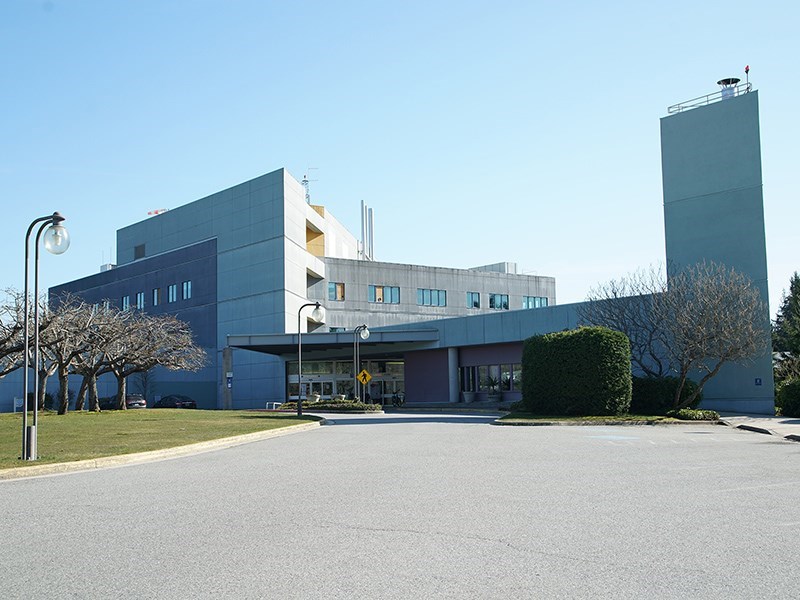Powell River Regional Hospital District committee of the whole has passed the second draft of its proposed 2024 to 2028 financial plan, which will go to the regional board for acceptance.
At the February 20 committee of the whole meeting, directors debated draft two, which included a residential tax rate of $20 per $100,000 of assessed home value to be placed in reserve to help pay for Vancouver Coastal Health requests for capital expenditures.
Manager of financial services Linda Greenan outlined the cost per average home for the budget, excluding the contribution to reserves. For City of Powell River taxpayers, the tax would be $89.51, for Tla’amin Nation, $41,60, for Electoral Area A, $74.28, for Electoral Area B, $90.17, for Electoral Area C, $97.54, for Electoral Area D, $60.93 and for Electoral Area E, $82.41.
Greenan then did a comparison of taxes paid by local government for hospital district services, indicating that qRD is at the low end of the range for hospital taxes being paid.
Greenan said the second draft of the budget, with any revisions, will be brought forward as a final draft of the budget bylaw to the March 28 regional hospital board meeting for adoption.
Regarding the contribution to reserves, in a report to directors, Greenan stated that over the past several years, Vancouver Coastal Health has requested an average of approximately $1 million to support local infrastructure and equipment needs.
“Proactively setting funds aside annually is a good strategy as it spreads the costs out over many years and can reduce or eliminate the cost of future borrowing,” stated Greenan in the report.
Setting aside an additional tax of $20 per $100,000 of assessed value would generate an additional $1.7 million per year, added Greenan.
Electoral Area B director Mark Gisborne asked if the regional hospital board could increase the requisition from $20 per $100,000.
Greenan said the amount put into reserve was totally at the discretion of the hospital board.
Electoral Area B director Sandy McCormick said she wanted to know how the requisition would break down for an average house in each area.
“I have no problem with the budget,” said McCormick. “It looks fine. Kudos to staff for doing a great job on that. I do have concerns about the recommendation for the extra funds to go into reserves.”
Greenan said if the board decided to add a contribution of $20 per $100,000, that would mean, for an average home in the city, $118.08 per year. For Electoral Area A, it would be $98, Electoral Area B, $118.95, Electoral Area C, $128.67, Electoral Area D, $80.38, and Electoral Area E, $108.71.
“It’s a lot of money to ask taxpayers to pay when we are at the peak of our spending on the resource-recovery centre,” said McCormick.
Electoral Area C director and board chair Clay Brander said he appreciated the work Greenan put into the budget draft. He said he understands the add to the tax bill and being in a situation where the hospital district is asked to contribute to expenses. He moved a motion to recommend to the regional board to assess taxpayers the $20 per $100,000 of assessed value for the purpose of reserve funding.
“It’s responsible to try and build our reserves up for those situations so we don’t pass this onto future generations,” said Brander.
Gisborne said $20 per $100,000 might not be enough.
“The more we build our reserves, the better it might be when it comes to political wrangling with the province to get funding and facilities built,” said Gisborne.
City director Cindy Elliott said it was a difficult time to propose higher than the $20 per $100,000.
Electoral Area E director Andrew Fall said even with the $20 per $100,000 proposal, the regional hospital district is well below the median for taxes.
“In my view, it is justified and rational,” said Fall. “If we don’t save money now, we are saying future generations will have to pay the debt.”
He added that qathet Regional District's finance committee had just gone through an exercise to try and trim expenses so he would be reluctant to go above the $20 figure.
City director and hospital district chair George Doubt said the $20 increase is doubling the amount taxpayers in the city will have to pay for regional hospital taxes and he understands that is a significant amount. He said, however, it was reasonable and he is willing to pay for better health care.
Gisborne made an amendment to the motion to increase the requisition to $30 per $100,000, but there was no seconder. The committee adopted the motion for $20, with McCormick opposed.
Join the Peak's email list for the top headlines right in your inbox Monday to Friday.


